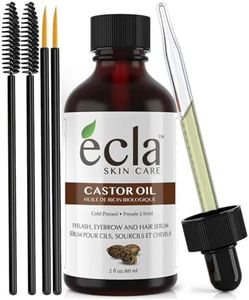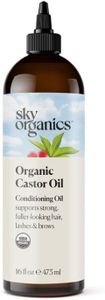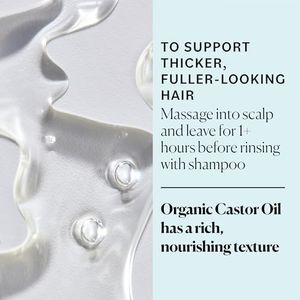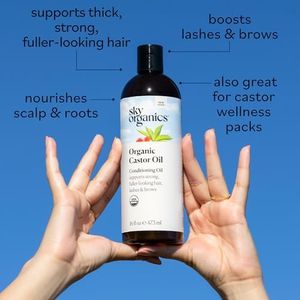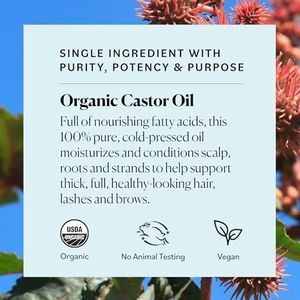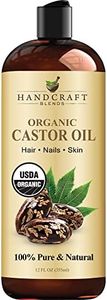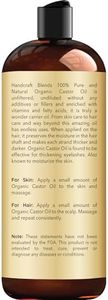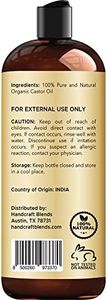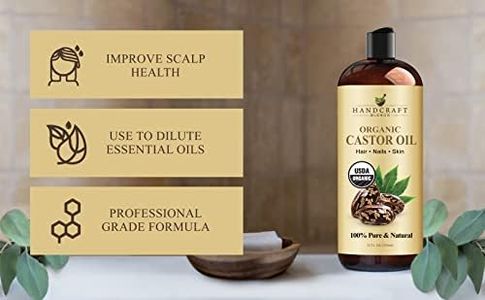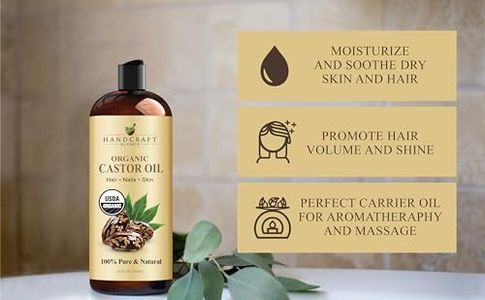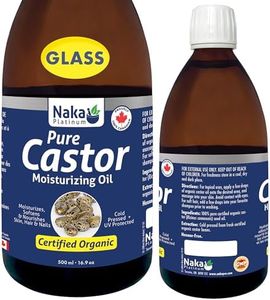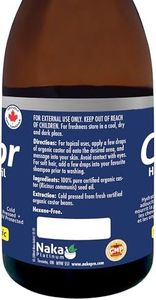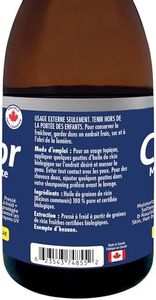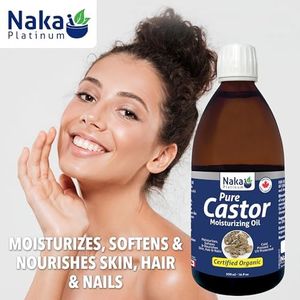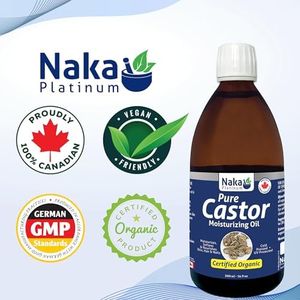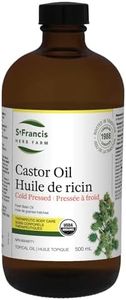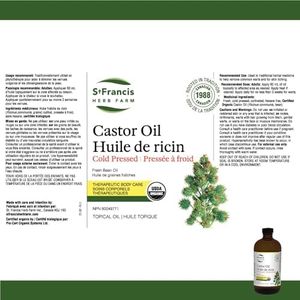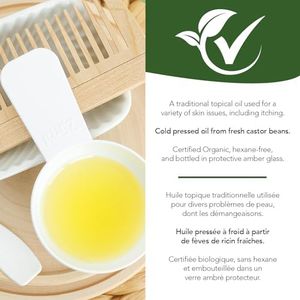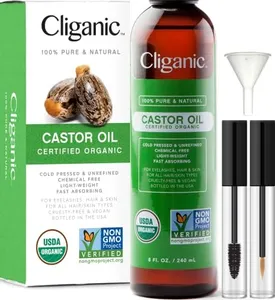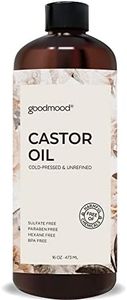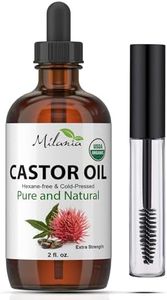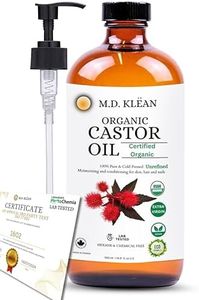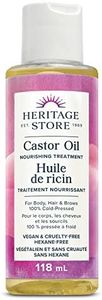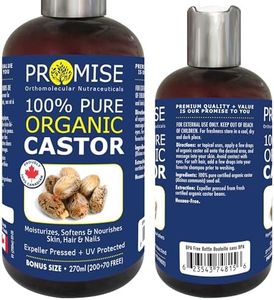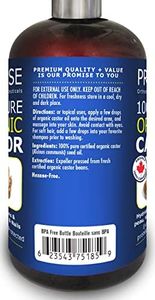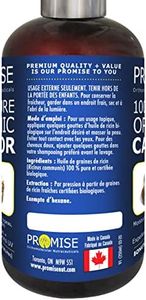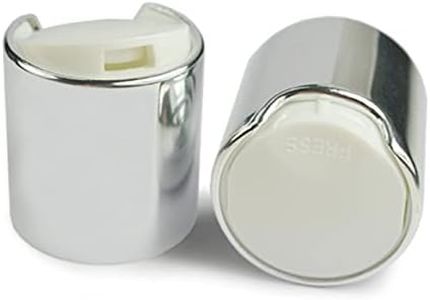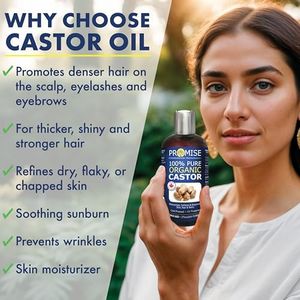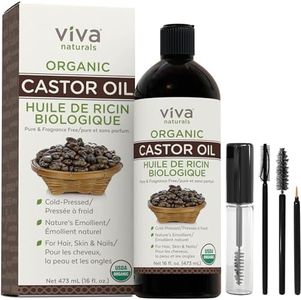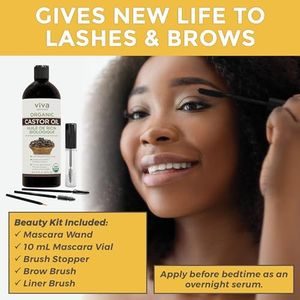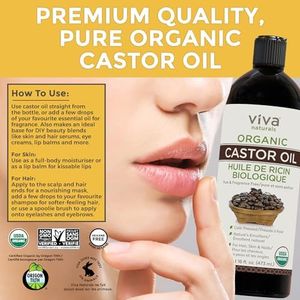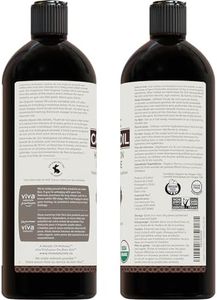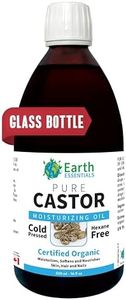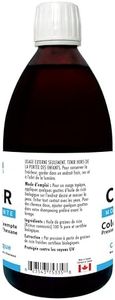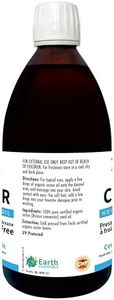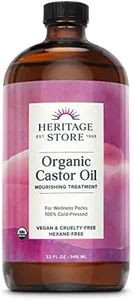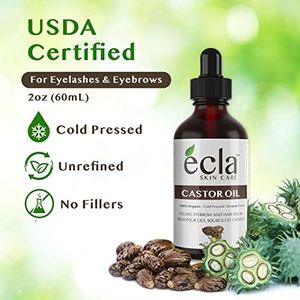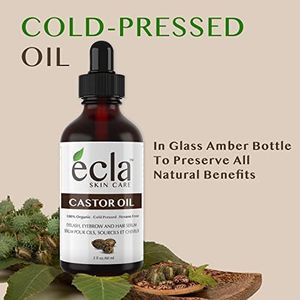We Use CookiesWe use cookies to enhance the security, performance,
functionality and for analytical and promotional activities. By continuing to browse this site you
are agreeing to our privacy policy
10 Best Castor Oils
From leading brands and best sellers available on the web.Top 10 Best Castor Oils 2025 in Canada
#1
Winner
Sky Organics Organic Castor Oil for Hair, Lashes & Brows 100% Pure & Cold-Pressed USDA Certified Organic to Strengthen, Moisturize & Condition, 16 fl. Oz
Sky Organics Organic Castor Oil for Hair, Lashes & Brows 100% Pure & Cold-Pressed USDA Certified Organic to Strengthen, Moisturize & Condition, 16 fl. Oz
Purity: 100% pure
Extraction Method: cold-pressed
Refinement: unrefined
Color: slight color variations
Intended Use: lashes, brows, hair care, moisturizing
Chosen by 1402 this week
Handcraft Organic Castor Oil for Hair, Eyelashes and Eyebrows - 100% Pure and Natural Carrier Oil, Hair Oil and Body Oil - Moisturizing Massage Oil for Aromatherapy - 355 ml
Handcraft Organic Castor Oil for Hair, Eyelashes and Eyebrows - 100% Pure and Natural Carrier Oil, Hair Oil and Body Oil - Moisturizing Massage Oil for Aromatherapy - 355 ml
Purity: 100% pure natural organic
Intended Use: hair care, skin, massage, hair, eyelash, eyebrow
Naka Platinum Pure Certified ORGANIC Expeller Pressed CASTOR Oil - Moisturizes, Softens and Nourishes Skin, Hair and Nails - 500 ml
Naka Platinum Pure Certified ORGANIC Expeller Pressed CASTOR Oil - Moisturizes, Softens and Nourishes Skin, Hair and Nails - 500 ml
Purity: 100% Canadian Organic, hexane-free
Extraction Method: cold pressed
Refinement: unrefined or minimally refined
Color: golden
Intended Use: external use
St. Francis Herb Farm Castor Oil | Castor Oil for Skin | Certified Organic | 100% Hexane Free | Amber Bottle | (500 ml)
St. Francis Herb Farm Castor Oil | Castor Oil for Skin | Certified Organic | 100% Hexane Free | Amber Bottle | (500 ml)
Purity: certified organic
Extraction Method: cold-pressed
Refinement: no heat or solvents used
Intended Use: topical use only
270ml (9oz) ORGANIC CASTOR Oil, 100% Pure Certified For Hair, Beard, Moisturizes, Softens, Nourishes Skin, Hair and Nails, Made in Canada, No Chemicals Cruelty Free Hexane free (270ml)
270ml (9oz) ORGANIC CASTOR Oil, 100% Pure Certified For Hair, Beard, Moisturizes, Softens, Nourishes Skin, Hair and Nails, Made in Canada, No Chemicals Cruelty Free Hexane free (270ml)
Purity: 100% pure organic
Extraction Method: expeller pressed
Refinement: minimal processing
Color: golden
Intended Use: skin, hair, nails
#10
Buying Guide for the Best Castor Oils
Choosing the right castor oil can make a big difference depending on how you plan to use it, whether for hair care, skin care, or other purposes. It's important to understand the different qualities and types available so you can select one that best matches your needs. By paying attention to a few key specifications, you can ensure you get a product that is safe, effective, and suitable for your intended use.PurityPurity refers to how much of the product is actually castor oil without any added chemicals, fragrances, or fillers. Pure castor oil is important because it reduces the risk of skin irritation and ensures you get the full benefits of the oil. You may find oils labeled as 100% pure, blends, or those with added ingredients. If you want the most natural and effective product, especially for skin or hair, look for oils labeled as 100% pure or cold-pressed castor oil. If you are using it for a specific blend or recipe, a mixed oil might be suitable.
Extraction MethodThe extraction method tells you how the oil was taken from the castor beans. The most common methods are cold-pressed and solvent-extracted. Cold-pressed oils are made without heat or chemicals, which helps keep more nutrients in the oil, making them a better choice for skin and hair care. Solvent-extracted oils may be less expensive but can contain traces of chemicals and may lose some beneficial properties. If you want the highest quality for personal care, choose cold-pressed castor oil.
RefinementRefinement refers to how much the oil has been processed after extraction. Unrefined (or raw) castor oil keeps more of its natural nutrients and has a stronger scent and color, while refined oils are lighter in color and odor but may lose some beneficial properties. If you have sensitive skin or prefer a milder scent, refined oil might be better. For maximum benefits, especially for hair and scalp treatments, unrefined oil is often preferred.
ColorCastor oil can range from pale yellow to almost clear, depending on how it was processed. Jamaican black castor oil, for example, is darker because the beans are roasted before extraction. The color can affect how the oil feels and smells, but it doesn't always mean one is better than the other. If you want a lighter oil for facial use, choose a pale or clear oil. If you are looking for a traditional remedy for hair, the darker Jamaican black castor oil might be what you need.
Intended UseSome castor oils are specifically labeled for cosmetic use, while others are for industrial or medicinal purposes. It's important to choose an oil that matches your intended use. For skin and hair, always pick oils labeled as safe for cosmetic or topical use. If you are considering castor oil for internal use, make sure it is food-grade and consult a healthcare professional first.
